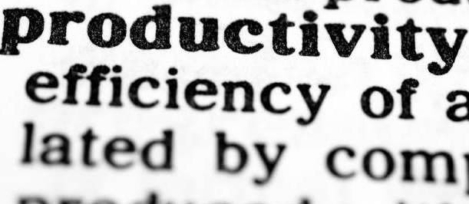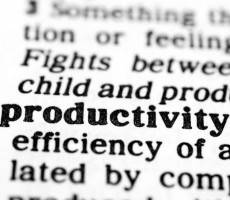September 15, 2016
Sick staff pressured to come to work, despite reduced productivity 0
 Over two thirds of employees (68.3 percent) say that they feel guilty for taking sick days despite the fact that they’re vastly less productive when they do show up ill, a new survey suggests. Yet more than two thirds (67.5 percent) still go into work when they are unwell, and over half (54.6 percent) report that their employer does not send them home when they’ve felt ill at work. According to the research from CV-Library, the average employee (66.4 percent) only takes between one to two sick days a year; and of those that do take time off, over a third (34.2 percent) of employees say their managers put pressure on them to return to work early and a further 44.7 percent said their employer questions their sickness when they are ill. Worse still, it seems that over half (52.9 percent) of managers still contact their employees whilst they are off sick, adding extra pressure and not giving staff time, and space, to relax and recover.
Over two thirds of employees (68.3 percent) say that they feel guilty for taking sick days despite the fact that they’re vastly less productive when they do show up ill, a new survey suggests. Yet more than two thirds (67.5 percent) still go into work when they are unwell, and over half (54.6 percent) report that their employer does not send them home when they’ve felt ill at work. According to the research from CV-Library, the average employee (66.4 percent) only takes between one to two sick days a year; and of those that do take time off, over a third (34.2 percent) of employees say their managers put pressure on them to return to work early and a further 44.7 percent said their employer questions their sickness when they are ill. Worse still, it seems that over half (52.9 percent) of managers still contact their employees whilst they are off sick, adding extra pressure and not giving staff time, and space, to relax and recover.













 Two of the most persistent and related structural problems facing the UK economy are the productivity and digital skills gaps. Earlier this month, the Office for National Statistics reported that there had been a further 1.2 percent fall in productivity. Part of the reason for this is that there is an underlying digital skills gap. According to a report from Barclays, nearly a third (31 percent) of working-age adults in the UK lack even basic digital problem-solving skills which places the country comfortably below the 37 percent average across OECD countries. Despite this, a mere 38 percent of UK employers offer their workers digital skills training, perhaps because on the other side of the coin, the UK ranks highly in what the report calls ‘digital empowerment’, which it defines as ‘the ability and desire to use one’s digital skills to work productively and creatively, and to have the opportunity to continually upgrade them to keep pace with changing technology’.
Two of the most persistent and related structural problems facing the UK economy are the productivity and digital skills gaps. Earlier this month, the Office for National Statistics reported that there had been a further 1.2 percent fall in productivity. Part of the reason for this is that there is an underlying digital skills gap. According to a report from Barclays, nearly a third (31 percent) of working-age adults in the UK lack even basic digital problem-solving skills which places the country comfortably below the 37 percent average across OECD countries. Despite this, a mere 38 percent of UK employers offer their workers digital skills training, perhaps because on the other side of the coin, the UK ranks highly in what the report calls ‘digital empowerment’, which it defines as ‘the ability and desire to use one’s digital skills to work productively and creatively, and to have the opportunity to continually upgrade them to keep pace with changing technology’.
 Screening sporting events in the workplace may increase productivity, according to research released by employment law specialist Peninsula. In a survey of 894 employees across the UK, 64 percent reported being more productive as being allowed to watch sporting events at work. The survey, which claims to examine how businesses managed employees during the first half of the summer of sports also revealed that 46 percent of employees want clearer policies regarding watching sporting events at work. This related to the fact that employers only showed certain games during Euro2016 and didn’t show any of the Wimbledon tournament. 51 percent of respondents also called for employers to be more flexible during major sporting games allowing them to start late, leave early or swap with colleagues. 24 percent said that a lack of flexibility would encourage their decision to call in sick in order to watch their favourite sporting event.
Screening sporting events in the workplace may increase productivity, according to research released by employment law specialist Peninsula. In a survey of 894 employees across the UK, 64 percent reported being more productive as being allowed to watch sporting events at work. The survey, which claims to examine how businesses managed employees during the first half of the summer of sports also revealed that 46 percent of employees want clearer policies regarding watching sporting events at work. This related to the fact that employers only showed certain games during Euro2016 and didn’t show any of the Wimbledon tournament. 51 percent of respondents also called for employers to be more flexible during major sporting games allowing them to start late, leave early or swap with colleagues. 24 percent said that a lack of flexibility would encourage their decision to call in sick in order to watch their favourite sporting event.


















August 17, 2016
Intelligent lighting can enhance workplace wellbeing and productivity 0
by Andy Gallacher • Comment, Environment, Facilities management, Lighting, Wellbeing, Workplace design
(more…)